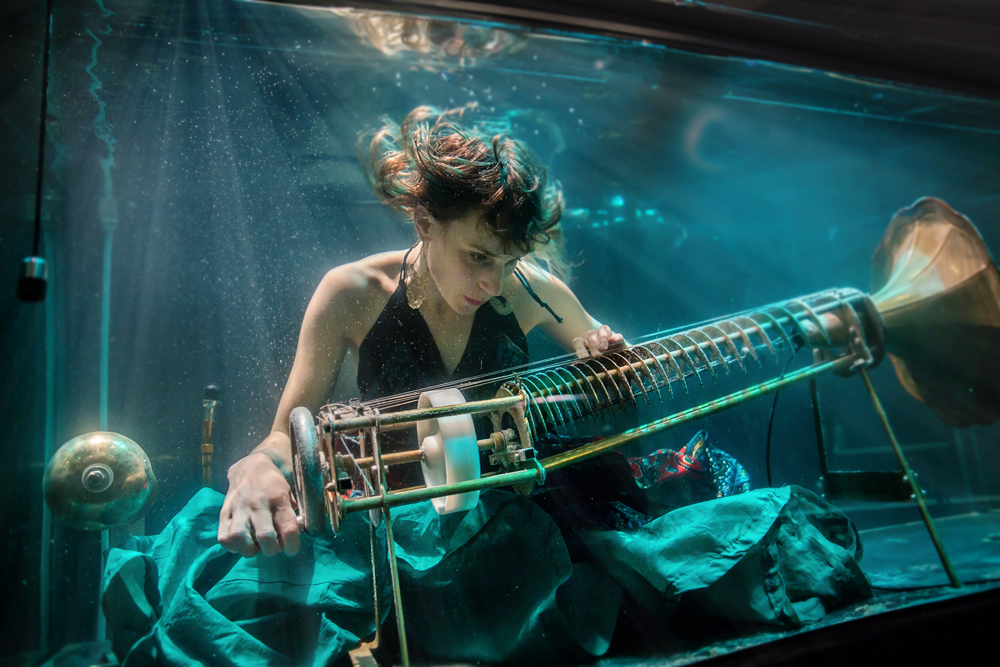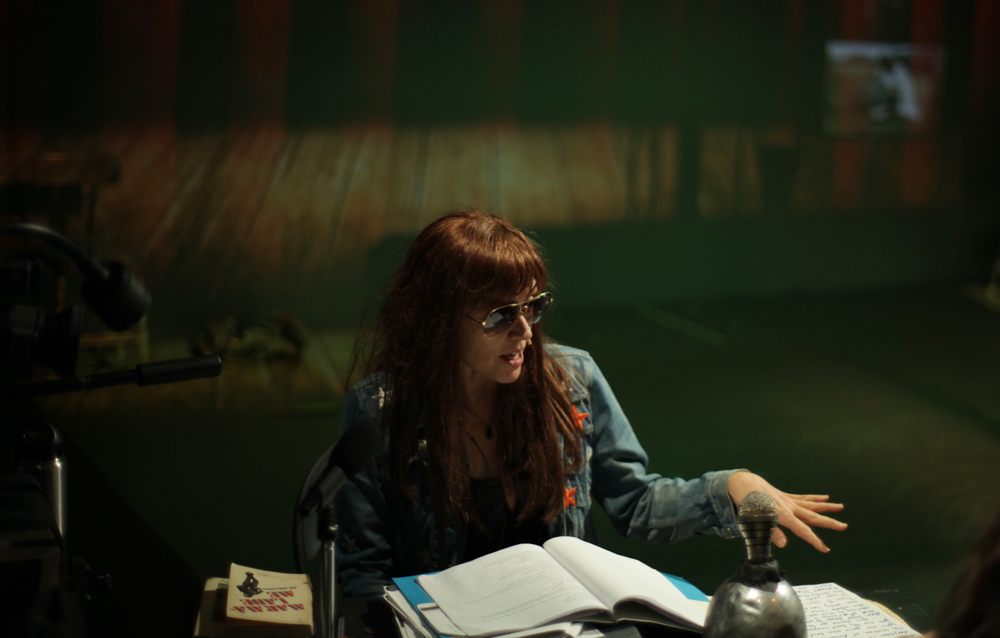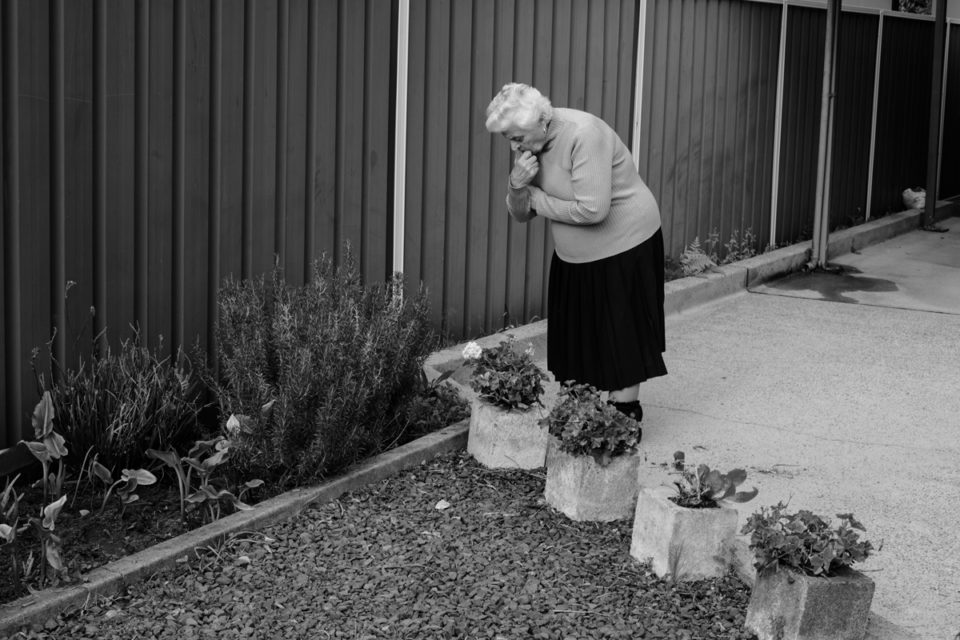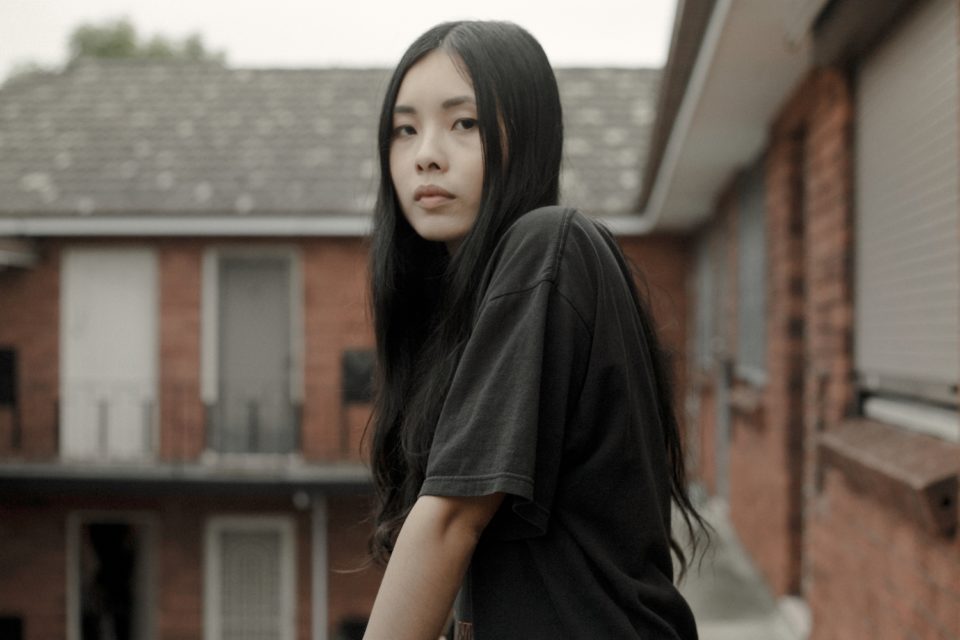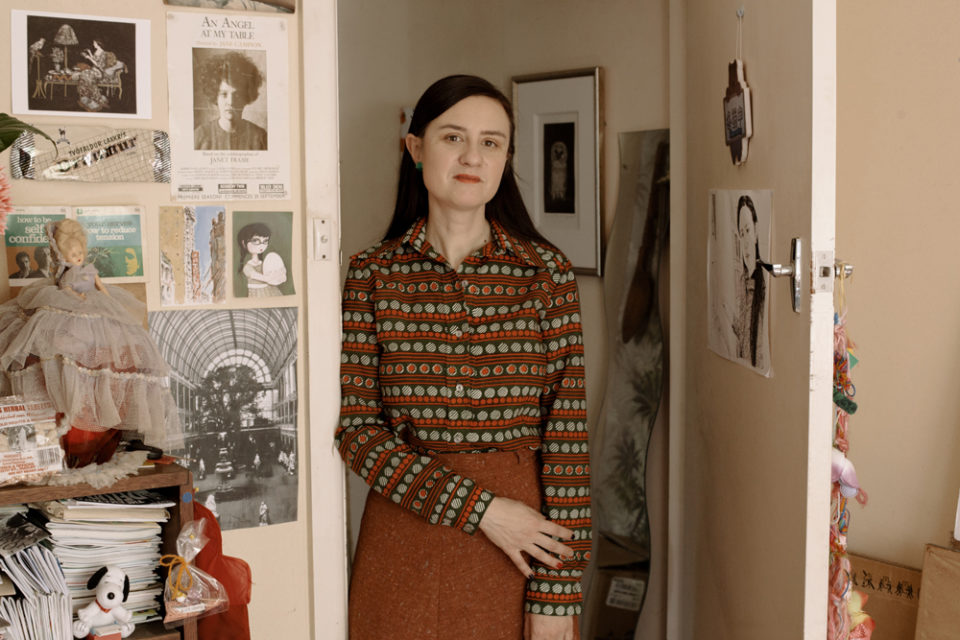It’s 1AM in Edinburgh, and the Australian theatre director Wesley Enoch has spent the day “staying awake in dark, airless theatres for hours on end”. It’s festival season in the Scottish capital, the little city that calls itself ‘the world’s leading festival city’. Today, Enoch has sat through seven consecutive shows.
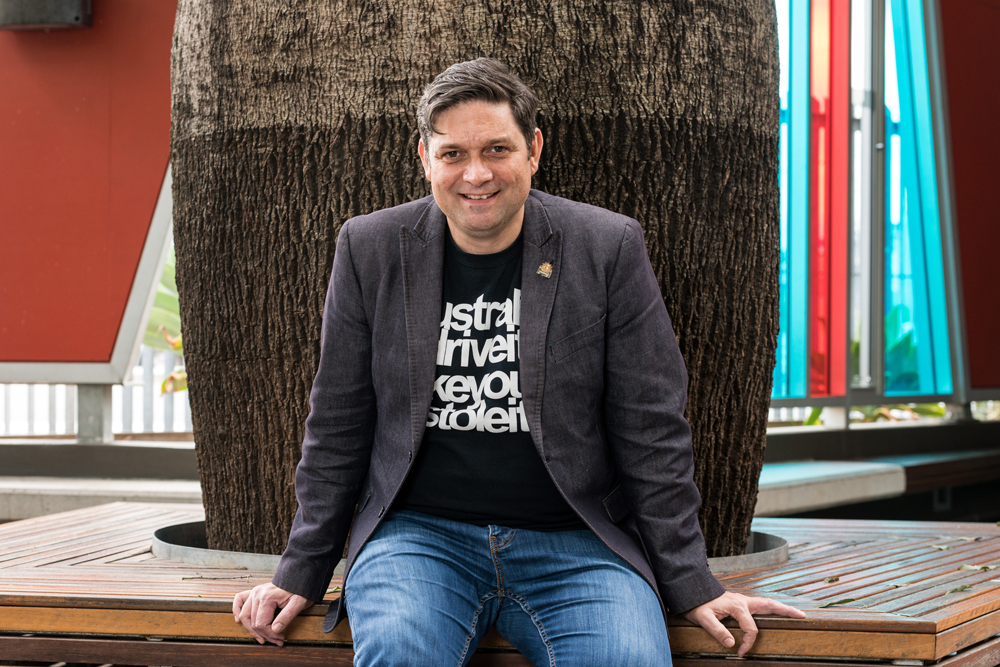
Wesley Enoch, Artistic Director for Sydney Festival 2018. Photography by Darren Thomas
With a population resting below half a million and a meagre ambit of just 264 kilometres squared, Edinburgh may seem an unlikely candidate for a distinction predicated on scale. Yet, as anyone who’s ever visited the city at the height of its summer can tell you, a sceptic would be hard-pressed to discredit the claim.
Each August, its cobblestoned streets crowd: Edinburgh becomes a hive of vibrancy as hundreds of thousands of visitors from all over the world ping-pong between venues—a gallery now, for an exhibition; then a writer’s talk in a marquee in Charlotte Square Park; and afterwards, a theatre, for a one-woman show. Maybe later, if we’re still standing, we’ll take in a poetry slam and a dram of the good stuff—neat; because, when in Rome…—in a little spot near the Old Town, to wind down…
They come for the Edinburgh International Festival, and the Edinburgh Art Festival; the Edinburgh International Book Festival; the Edinburgh Fringe Festival, and the Royal Edinburgh Military Tattoo. This astonishing cultural array plays out over four weeks, from late July to the end of August. “The locals say it becomes a sleepy little university town for the rest of the year,” Enoch says. “But at festival time, it just goes crazy.”
Far from glutting on pleasure, Enoch is in Edinburgh on business. For now, his creative life as one of the country’s foremost writers and directors of Indigenous-themed theatre is on hold. As the sitting Artistic Director of the Sydney Festival, he’s scouting for next year’s shows. Despite the hour’s lateness—and the day’s endurance spectatorship—he’s upbeat. “What I do for work, other people do for relaxation,” he says. “So, it’s hard to take the high moral ground on it!”
The 2018 Sydney Festival will be the second under Enoch’s stewardship. “The difficult second album!” he laughs. Though the program is not yet finalised, certain thematic through lines are already asserting themselves. “It’s weird how that happens sometimes,” Enoch says. “It’s not like we set out to have a theme. It just kind of comes through in waves, because artists are interested in, and fascinated about, certain conversations.”
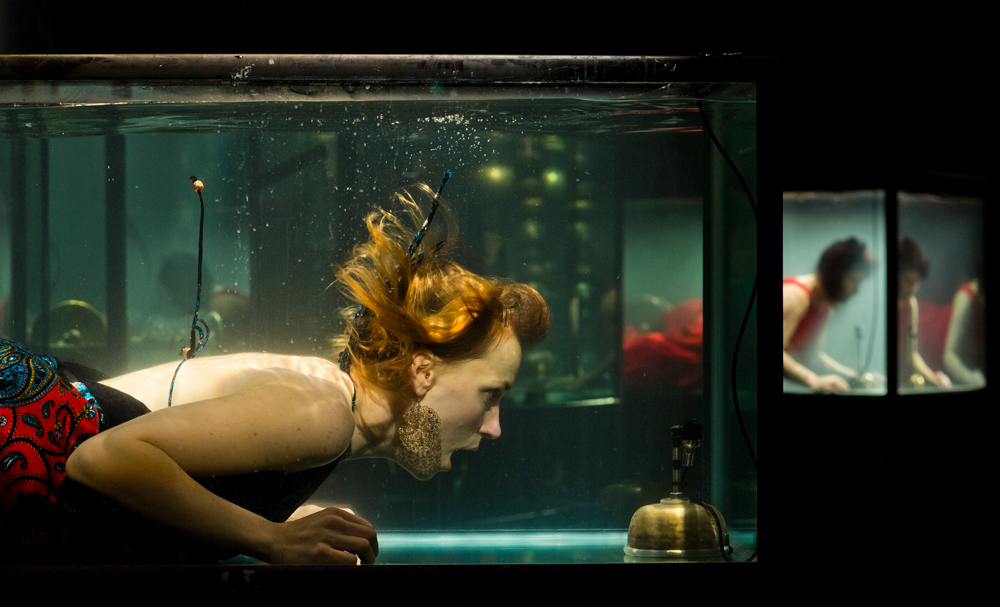
Aquasonic. Photography by Jens Peter Engedal
One of those dialogues, in Enoch’s words, is “about consumption habits, [particularly] about what it means to be connecting to our landscapes through water.”
“We’ve spent a lot of time as Australians taking water for granted. Yes, there’s drought, and flooding rains. But they always seem to balance out. There’s a notion, too, that we can throw anything into the ocean, [and] because the ocean is so big, we won’t affect it. I think in the last—let’s call it, twenty years, we’ve started to realise that that’s not possible.”
“There’s a lot of debate about keeping the country alive through waterflow,” he continues. “If we think of Australia as a body, and [see] that the waterways are, in fact, the veins and arteries through which nutrients go in and out… If we clog them up, if we dam too often, if we don’t allow the natural flows to happen, we will change the health of the country itself.”
AquaSonic does not directly engage questions of environmental responsibility. Nor is it an Australian production. Yet to Enoch, the spectacular-looking “underwater concert” by Danish avant gardists, Between Music, has a resonance beyond the novelty of its form. “There’s a notion of a meditation through water,” he says. “It’s like listening to whale song. We just take it for granted that sound travels through air. For it to travel through water is a totally different experience. [AquaSonic] is a lovely little meditation on what water is.”
Take a moment to appreciate this: submerged in onstage aquariums, five musicians play custom-made instruments and sing in their own invented, apparently bubbleless style, gulping well-timed breaths by sticking their heads out of their tanks during momentary gaps in performance. “It’s amazing stuff,” Enoch enthuses. “Amazing. It just takes time out to think about how sound is made, and how music can be made differently, if we just take our consciousness somewhere else.”
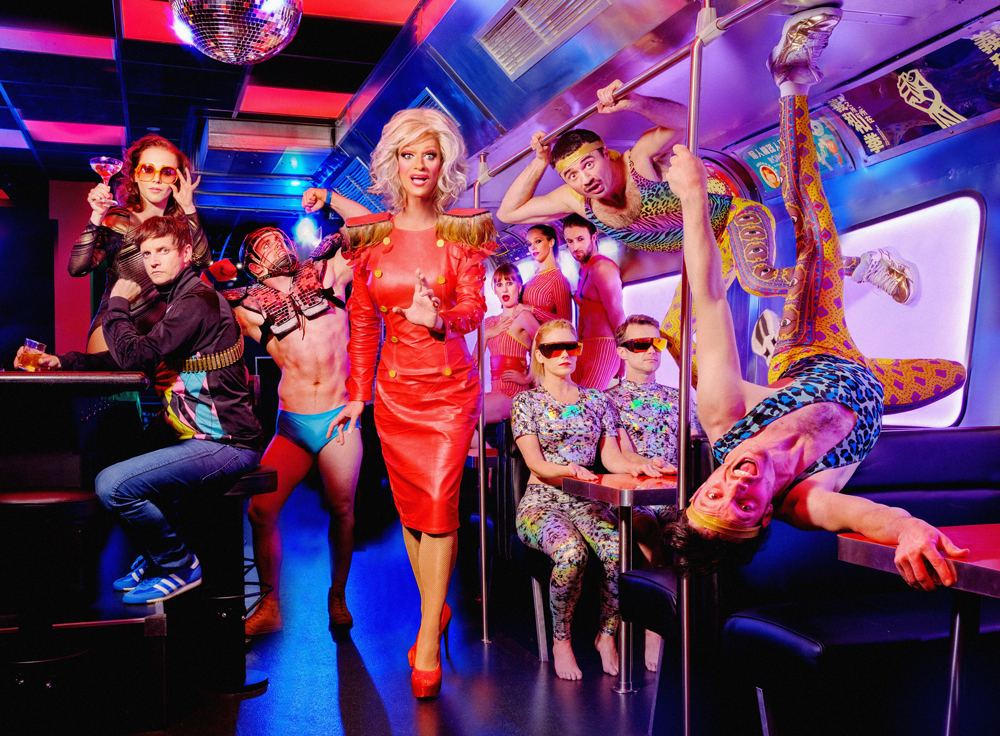
RIOT. Touring 2018. Conor Horgan, Niall Sweeney
Elsewhere, the Irish variety extravaganza,
Riot’s star, Panti Bliss, was “very vocal in the [successful] Marriage Equality discussions in Ireland.” The Turnbull government’s recent insistence on placing itself on the wrong side of history, per the Marriage Equality debate, has lent even this celebratory-seeming production an aura of dissent. “This was before the postal survey”—here Enoch’s voice turns mock authoritarian—“the non-compulsory, non-binding postal survey, was mooted.”
“But every artist who sets out to make a piece of work that is connected to their society is, in fact, constructing a new political voice, a new way of looking at the world. And that is political, whether you like it or not.
“It’s a classic thing to say, ‘There’s no such thing as apolitical: you take a position whether you like it or not,’” he says. “But, good art has something to say. It just has.”
“The role of the artist is becoming even more important. I think our political leaders, and our social leaders, are abdicating their responsibilities to have these types of discussions.”
The degradation in quality of public debate is likely to be brought into stark relief by
The play, by the experimental New York theatre collective, The Wooster Group, frontlines a number of shows “about the role of women in society.” It finds currency by looking at history. “It’s interesting in America, where at the moment there’s so much introspection about in terms of political leadership, that they’ve gone back to the 1970s, to find a feminist argument to reinvigorate the discussion about the role of women,” Enoch says. “It’s fascinating that their exploration of this event has coincided with Donald Trump’s misogyny, and his total disrespect for Hillary Clinton in the lead up to the last American election.”
“Much of the public debate at the moment, here and [abroad], it’s not about fact, it’s about how you feel.”
“[On] social media, in particular, we can shout into this echo chamber and get the message we want back, and find a tribe of people who respond to, and believe in, what we’re saying, because it feels right. Not because the facts say that it’s right; not because there’s the evidence, or the scholarly thinking has happened.”
“The Marriage Equality debate in Australia is interesting. The respectful debate isn’t happening, because people are going into their corners and trying to find the position that they want to hold.”
“I think that’s the problem with big public debates. Feminism, Aboriginal rights, Marriage Equality: all these issues should be about logical debate and discussion. And art is one of those amazing, safe places to have a debate about something.”
Before we hang up, I tell Enoch the story of my first encounter with his work. As a sixteen-year-old, in 2001, I day-tripped with my small drama class via bus from our school on the NSW South Coast to Sydney, to see Deborah Mailman perform Enoch’s play about Indigenous grief and reconciliation, The 7 Stages of Grieving. It’s the experience that first awakened me to the profound potential of live performance. After quipping that I’ve made him feel old, Enoch sighs. “That play is twenty years old. It did a big international tour, just this year. And people were saying how relevant it was. And I’m going, ‘Oh, no. Twenty years on and people think it’s still relevant?’ Isn’t that terrible?”
“Not unlike The Town Hall Affair?” I ask.
“The politics of anything is cyclical,” Enoch replies, before offering a brief anecdote. “I was talking to an Elder recently, and he was saying that this sense of political malaise that we’re in at the moment … He couldn’t tell whether it was the venom in the fangs of the snake, or the sting in the scorpion’s tail.”
The Town Hall Affair, RIOT and Aquasonic are the first three shows to be announced of Sydney Festival’s program, see www.sydneyfestival.org.au for tickets and more information. The festival takes place from 6-28 January 2018.


